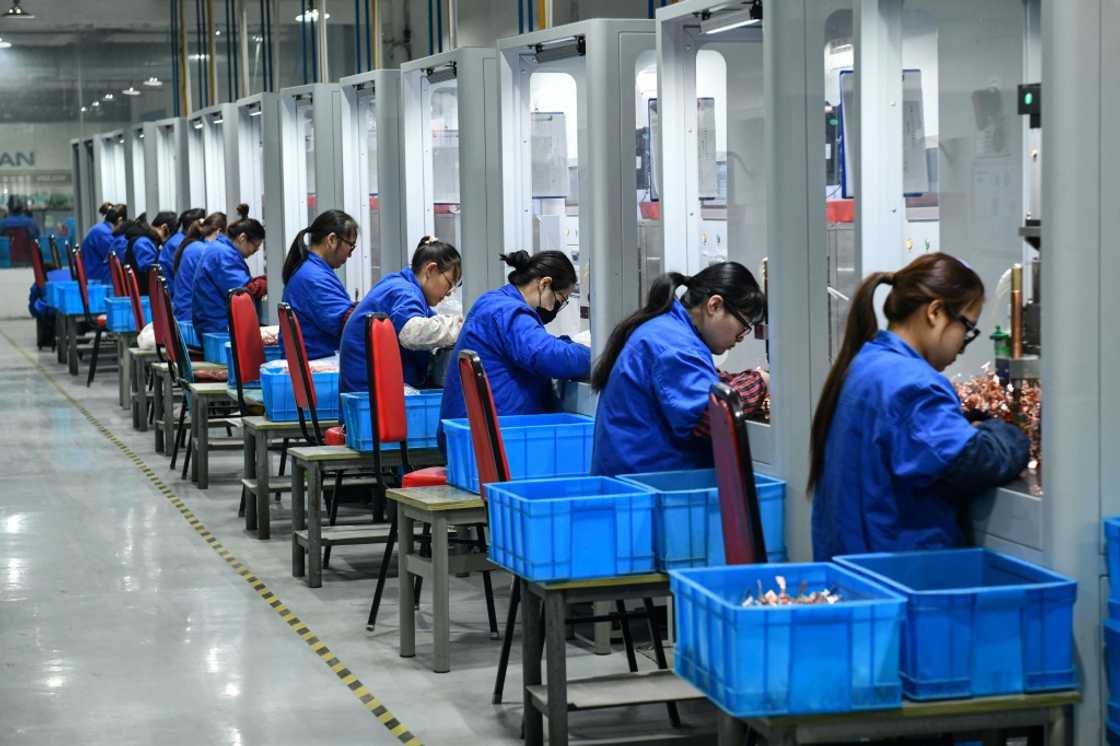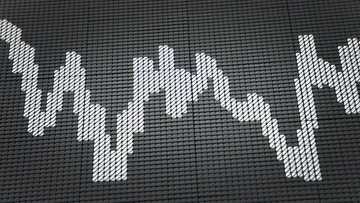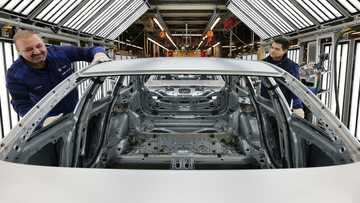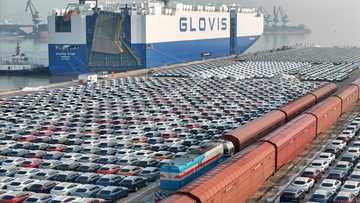China sees one of its worst years of growth since 1990 as recovery stalls

Source: AFP
China's economy last year grew at one of its slowest rates in more than three decades, official figures showed Wednesday, as it was battered by a crippling property crisis, sluggish consumption and global turmoil.
The figures were in line with expectations and even beat Beijing's target but will likely pile fresh pressure on officials to unveil more stimulus measures to kickstart business activity and get the country's army of consumers spending again.
China's National Bureau of Statistics revealed that gross domestic product expanded 5.2 percent to hit 126 trillion yuan ($17.6 trillion) last year.
The reading is better than the three percent recorded in 2022, when strict zero-Covid curbs destroyed activity, but marks the weakest performance since 1990, excluding the pandemic years.
While 5.2 percent would be looked on enviously by other governments such as the United States and eurozone -- which each expanded around two percent in 2022 -- it is well down from the levels around six or seven percent constantly enjoyed in the 2010s.
After lifting its draconian Covid measures at the end of 2022, Beijing set itself a growth target of "around five percent" for last year.
PAY ATTENTION: Click “See First” under the “Following” tab to see YEN.com.gh News on your News Feed!
The economy enjoyed an initial post-pandemic rebound, but ran out of steam within months as a lack of confidence among households and businesses hit consumption.
The country's exports -- historically a key growth driver -- fell last year for the first time since 2016, according to figures published by the customs agency on Friday.
Geopolitical tensions with the United States and efforts by some Western nations to reduce dependence on China or diversify their supply chains have also hit growth.
'Disappointing' recovery
China's GDP figures remain a key source of insight into the health of the world's second-largest economy, despite being eminently political.
Officials are due to release their growth target for 2024 in March.
NBS Commissioner Kang Yi, told media Wednesday that the recovery had been an "arduous task" in 2023, while other data painted a bleak picture of the state of the economy as the year drew to a close.
Between the third and fourth quarters -- figures more reflective of the real-time economic situation -- it only grew one percent.
And December saw retail sales -- a key indicator of household spending -- slow after a rebound the previous month.
Unemployment also increased slightly to 5.1 percent -- though the statistics effectively exclude millions of migrant workers from rural areas.
Official statistics also showed China's population decline accelerated in 2023, extending a downward streak after more than six decades of growth as the country battles a looming demographic crisis.
"What China saw last year was possibly the most disappointing post-Covid recovery imaginable," Shehzad Qazi, managing director of China Beige Book, a consultancy firm that tracks the Chinese economy, told AFP.
"The economy limped to calendar's end," he said.
"Any true acceleration next year will require either a major global upside surprise or more active government policy."
Risks abound
Weighed down by a lack of business confidence and sluggish consumption, China has sought to lure back international investors.
Speaking at the annual meeting of global elites in Davos on Tuesday, Premier Li Qiang painted a bullish picture of the economy.
"No matter how the world situation changes, China will adhere to its basic national policy of opening up to the outside world," Li said, adding that "the door to opening up will only get wider and wider".
"Choosing the Chinese market is not a risk but an opportunity," he said.
But risks abound -- most prominently in the country's teetering real estate market.
The sector has long-accounted for around a quarter of China's economy, and experienced dazzling growth for two decades.
But financial woes at major firms such as Evergrande and Country Garden are now fuelling buyer mistrust against a backdrop of unfinished housing developments and falling prices.
Property was for years seen by many Chinese as a safe place to park savings, but price drops have hit their wallets hard and Beijing's support measures for the sector have so far had little effect.
Also weighing down the economy is a lack of jobs for the country's youth.
A record of more than one in five people aged 16 to 24 in China were unemployed in May, according to officials.
Beijing has since suspended the monthly publication of youth unemployment figures.
New feature: Сheck out news that is picked for YOU ➡️ click on “Recommended for you” and enjoy!
Source: AFP





